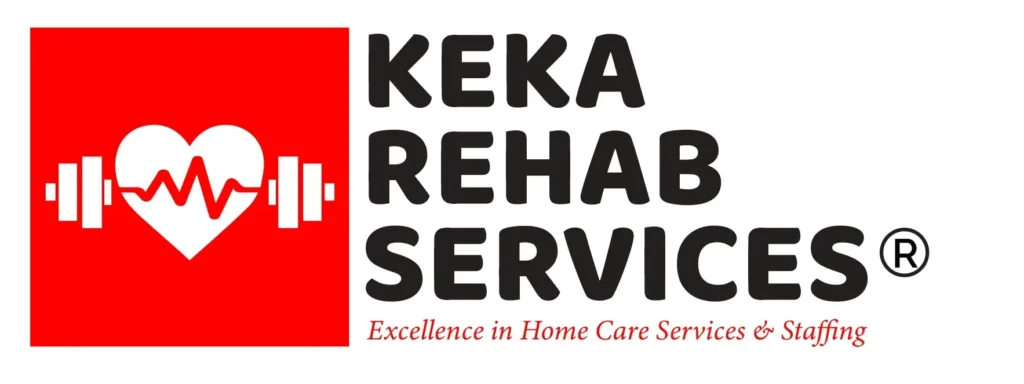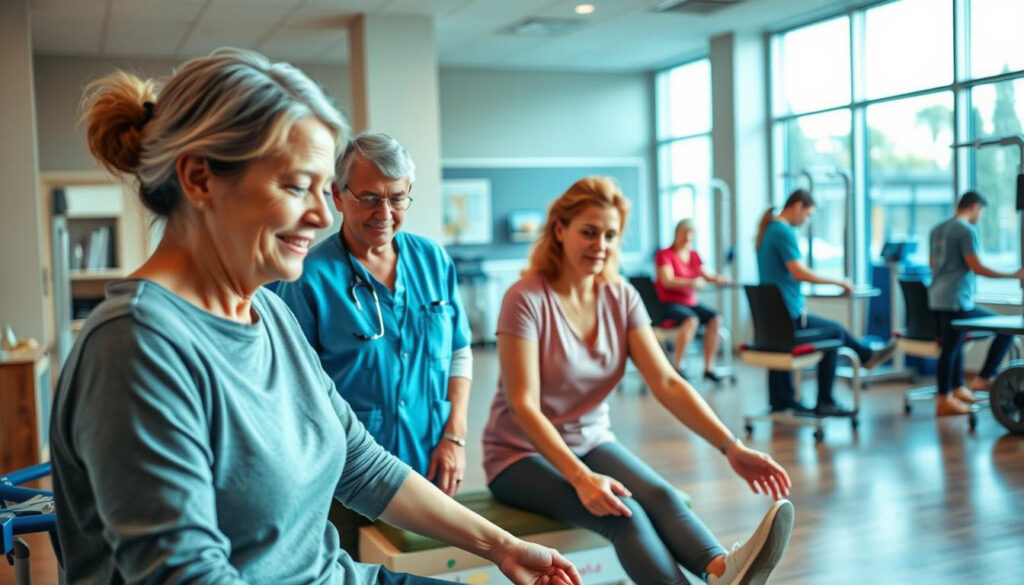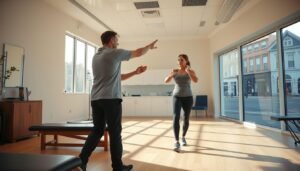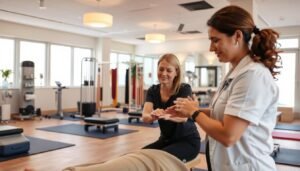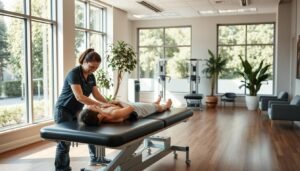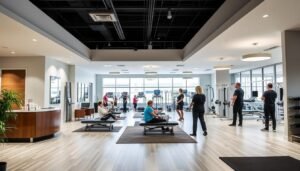Structured programs are vital in helping you regain independence and improve your quality of life. These programs are designed to address challenges at home, work, or school, ensuring a comprehensive approach to recovery. Whether you’re seeking support for employment or training, these tailored plans focus on your unique needs.
Expert guidance is essential for achieving long-term success. Focusing on education and support, these programs integrate various elements to help you thrive. From school readiness to emotional well-being, each step is carefully planned to meet your goals.
These initiatives combine physical, emotional, and psychological support to ensure a holistic recovery journey. They empower every person to overcome obstacles and build a brighter future.
Key Takeaways
- Structured programs address challenges at home, work, or school.
- Tailored plans focus on individual needs and goals.
- Expert guidance ensures long-term success in recovery.
- Comprehensive support includes physical, emotional, and psychological care.
- Programs integrate education and training for holistic recovery.
Understanding Rehabilitation Services
Vocational rehabilitation helps you achieve employment and educational goals. These programs are tailored to your unique needs, focusing on personal and professional growth. Whether transitioning from high school or seeking new skills, these plans provide the tools for success.
What Are Rehabilitation Services?
Rehabilitation services include diagnostic evaluations, counseling, and tailored support. These programs address individual disabilities and help you regain essential functions. Each step from physical therapy to vocational training is designed to meet your specific goals.
Technology plays a key role in enhancing these programs. Assistive devices and therapeutic tools ensure you receive the best care possible. Family support is also crucial, providing emotional and practical assistance throughout your journey.
Key Benefits of Comprehensive Support
Comprehensive support offers numerous advantages. It helps you overcome challenges at home, work, or school. Services like job placement and counseling focus on your long-term success.
Vocational rehabilitation services are particularly impactful. They prepare you for employment through skills training and career planning. High school transitional programs also ensure a smooth shift into adulthood.
These programs address diverse needs and empower you to build a brighter future. With expert guidance, you can achieve your goals and improve your quality of life.
Exploring Vocational Rehabilitation Programs
Vocational rehabilitation programs are designed to help you achieve meaningful employment and career growth. These initiatives provide the tools and support needed to excel in the workplace. Whether seeking a new job or aiming to retain your current one, these programs are tailored to your unique needs.

Vocational Evaluation and Counseling
Vocational evaluations are the first step in understanding your strengths and career goals. These assessments help identify the best job opportunities for you. Counseling sessions provide personalized guidance to align your skills with the right career path.
Through detailed evaluations, you gain valuable information about your abilities and potential. This process ensures that your training and employment plans are tailored to your needs.
Employment, Training, and Support Opportunities
Vocational rehabilitation programs offer a range of opportunities to help you succeed. From job placement to skills training, these initiatives focus on your long-term career growth. Supported employment programs ensure you have the resources to thrive in your chosen field.
Assistive technology plays a key role in enhancing your work experience. Tools like screen readers or adaptive software help you perform tasks more efficiently. Business advice and career planning are also integral parts of these programs.
These programs empower you to achieve your career goals by combining training, technology, and personalized support. Whether entering the workforce or transitioning to a new role, vocational rehabilitation provides the necessary guidance.
Navigating Cost and No-Cost Service Options
Understanding the financial aspects of recovery programs is crucial for making informed decisions. Many programs offer no-cost options, such as counseling and diagnostic evaluations, ensuring accessibility for everyone. However, some services, like college tuition or assistive technology, may require a financial needs assessment.
Understanding Financial Needs and Assessments
Financial assessments help determine your contribution to cost-based services. These evaluations ensure that resources like therapy or equipment are accessible based on your financial situation. Counselors will guide you through this process, ensuring transparency and fairness.
No-cost services like job coaching and diagnostic evaluations are widely available. These programs focus on your skill development and placement needs without financial barriers. This approach ensures that everyone can access essential support.
Comparable Benefits and Eligibility Criteria
Eligibility for cost-based services often depends on locating “comparable benefits” from other sources. This means exploring existing resources like independent living programs or post-secondary education options. Counselors will help identify these opportunities to maximize your benefits.
Cost services like college fees or assistive tools require validated financial information. These resources are tailored to your needs, ensuring you receive the best support possible. Financial assessments are essential to calculate your contribution accurately.
You can achieve long-term success by aligning your skill development and placement services with your overall recovery journey. Whether accessing no-cost or cost-based options, these programs are designed to empower you.
Leveraging Personalized Rehabilitation Plans
Your path to recovery and career success starts with a customized plan. These plans focus on your unique needs, ensuring you receive the proper support to overcome challenges and achieve your goals.
The Role of the Individualized Plan for Employment (IPE)
The Individualized Plan for Employment (IPE) is your roadmap to success. It outlines the steps needed to reach your employment goals, integrating assistance like job coaching and skills training. This plan is tailored to your strengths and addresses any impairment to ensure you’re fully supported.
Creating a Tailored Recovery Strategy
Professional counselors work with you to develop a strategy that fits your needs. They consider your benefit goals, personal circumstances, and career aspirations. This approach ensures every recovery step is aligned with your long-term success.
Incorporating Assistive Technology and Counseling
Assistive technology and counseling guidance are key components of your plan. Tools like adaptive software and wearable devices enhance independence, while counseling provides emotional and practical support. Together, these elements empower you to thrive in your recovery journey.
These plans ensure you achieve your goals by combining personalized assistance and professional guidance. Whether it’s employment, education, or personal growth, your recovery strategy is designed to help you succeed.
Conclusion
A well-structured, personalized approach shapes your journey toward recovery and independence. By focusing on your unique needs, these programs ensure you receive the right support to overcome challenges and achieve your goals.
Community-based support plays a vital role in your progress. Ongoing evaluation and education help refine your strategy, ensuring it remains effective. Real-life examples and advanced equipment enhance your experience, providing practical solutions for everyday challenges.
Your personalized plan is the cornerstone of lasting recovery. It balances time-honored practices with modern resources, empowering you to build a brighter future. Stay engaged with community resources and continue your education to maximize your benefits.
FAQ
What are rehabilitation services?
Rehabilitation services are programs designed to help individuals recover from injuries, disabilities, or illnesses. These programs focus on improving physical, mental, and emotional health to achieve independence and a better quality of life.
What are the key benefits of comprehensive support?
Comprehensive support offers personalized care, resource access, and guidance tailored to your needs. It helps you achieve your goals, whether returning to work, improving daily living skills, or gaining independence.
What does vocational evaluation and counseling involve?
Vocational evaluation assesses your skills, interests, and abilities to identify suitable career paths. Counseling guides job training, education, and employment opportunities to help you succeed.
How can I access employment and training opportunities?
Vocational programs connect you with job placement, skill development, and training resources. These opportunities are designed to help you gain the experience needed for meaningful employment.
How are financial needs and assessments handled?
Financial needs are evaluated to determine eligibility for cost or no-cost options. Assessments ensure you receive the necessary support without undue financial burden.
What are comparable benefits and eligibility criteria?
Comparable benefits refer to existing resources you may already qualify for, such as health insurance or government assistance. Eligibility criteria ensure services are provided to those who need them most.
What is an Individualized Plan for Employment (IPE)?
An IPE is a customized plan that outlines your goals, services, and steps to achieve employment. It’s tailored to your unique needs and abilities to ensure success.
How is a tailored recovery strategy created?
A tailored recovery strategy is developed by assessing your specific needs and goals. It includes therapies, training, and support to help you regain independence and improve your quality of life.
How is assistive technology incorporated into rehabilitation?
Assistive technology, such as mobility devices or communication tools, is integrated into your plan to enhance daily living and improve functionality. It’s chosen based on your specific needs and goals.
